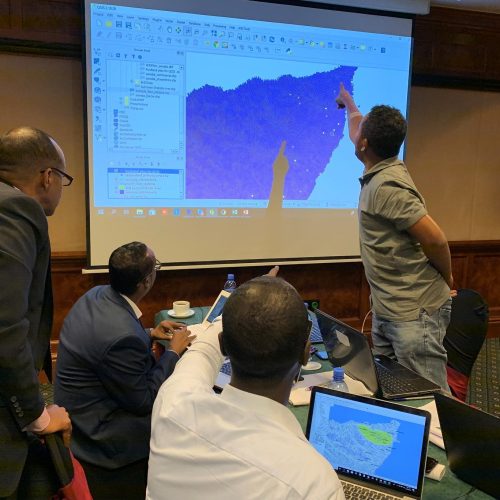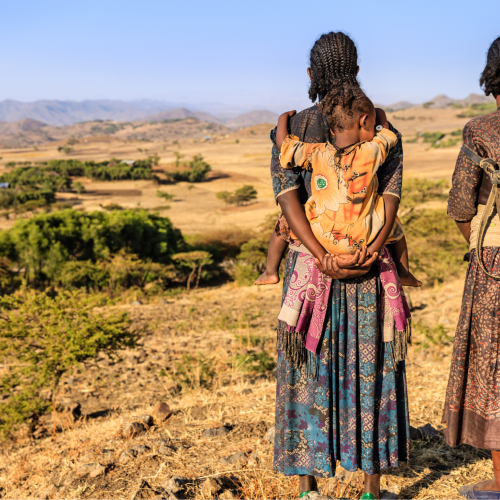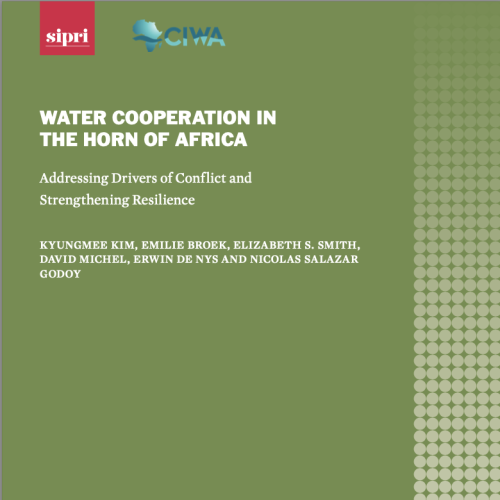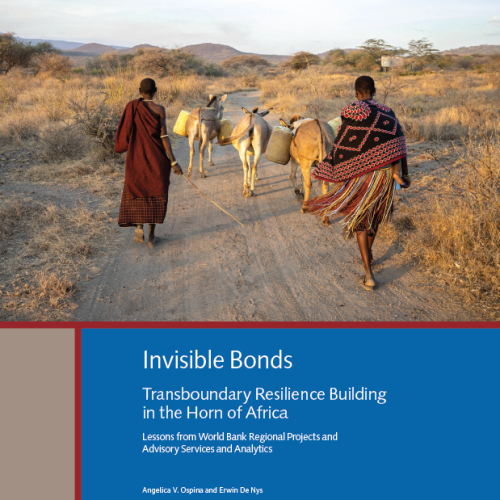HORN OF AFRICA
The Horn of Africa is beset by increasing intensity and frequency of drought, causing local communities to regularly migrate within and across borders to locate water sources. CIWA is at the forefront of work to improve the Horn’s use of groundwater and is providing leadership for regional groundwater knowledge and planning and institutional resilience to shocks from climate change. It also supported Somalia with capacity-strengthening efforts through transboundary dialogue, trust-building, and information exchange.
Horn of Africa Groundwater Initiative
- Year started: 2019
- Status: Active
- Key Partner/s: Intergovernmental Authority on Development (IGAD), covering Djibouti, Ethiopia, Kenya, Somalia, South Sudan, Sudan, and Uganda
Groundwater represents the main source of water in the HoA, where 30 percent of the population lives on arid and semi-arid lands. The region faces prolonged and intense drought and conflict from the inequitable sharing of groundwater aquifers. The transboundary nature of groundwater aquifers in the HoA makes assessments and monitoring of water levels and quality particularly challenging.
The HoA Regional Groundwater Initiative is strengthening regional cooperation and capacities in groundwater development and management and expanding the knowledge base on groundwater resources. The project successfully increased knowledge about groundwater, including a determination of surface water availability, water variability, and natural recharge of shallow groundwater and assessed the feasibility of potential investments.
Study to Examine Fragility and Water Cooperation at the Local Level in the Horn of Africa
People living in the Horn of Africa continue to be exposed to numerous complex challenges. Climate change and regional conflicts complicate the region’s ability to attain water security and governance. To better understand the multidimensional challenges in achieving water cooperation at the local level, CIWA has commissioned a study for the Stockholm International Peace Research Institute (SIPRI) to examine the intersections between fragility and transboundary water cooperation at the local level. And to decide on which transboundary water sources the study will focus, SIPRI and CIWA conducted a two-hour virtual workshop on September 2, 2021, to present six potential communities and transboundary water sources. Workshop participants featured SIPRI representatives; World Bank water specialists; agriculture specialists; and fragility, conflict, and violence experts.
Upon analyzing the six options and considering the workshop participants’ inputs, the decision was made for the study to focus on communities living in proximity to these transboundary water sources:
- The Sio-Malaba-Malakisi river basin (Nile sub-basin) shared by Kenya and Uganda
- The Dawa river (the Juba-Shabelle river basin) and the Dawa aquifer basin shared by Ethiopia, Kenya, and Somalia
- The Bahr el Ghazal (Nile sub-basin) and the Baggara Basin aquifer shared by South Sudan and Sudan
Dr. Kyungmee Kim, Researcher with SIPRI, lead the research together with SIPRI colleagues Emilie Broek, Elizabeth Smith, and David Michel. The final report has been published in November 2021.
Watch Video: The Horn of Africa Initiative: Stronger Together! (September 2022)
Next Steps
The initiative provided a valuable foundation and contributed lessons learned for CIWA’s new technical assistance, Untapping Resilience: Groundwater Management and Learning in the Horn of Africa’s Borderlands, and for the design and preparation of the World Bank’s Horn of Africa Groundwater for Resilience (GW4R) project. A US$385 million IDA-funded regional effort approved in June 2022, GW4R will increase sustainable access to, and management of, groundwater in the region’s borderlands.
This initiative laid a foundation for future collaboration among HoA countries and resulted in the development of a concept note to establish an IGAD Groundwater Information Center, which will be implemented by the HoA GW4R project. The center will enable enhanced sustainable groundwater use by making data and information readily available. This will feed into both regional and national planning, decision-making, and project implementation. Lessons emerging from the Merti Aquifer study will inform the project’s implementation and scope of investments in transboundary areas.
Untapping Resilience: Groundwater Management and Learning in the Horn of Africa’s Borderlands was launched in April 2022 to support the GW4R’s regional learning agenda and subsequent institutional capacity-building objectives. The learning agenda will be crucial to provide institutions with knowledge and capacity on:
(i) the role of groundwater in the HoA’s regional integration; (ii) sustainable groundwater service delivery; and (iii) groundwater’s role in addressing fragility and strengthening resilience in the borderlands. Core activities will include the collection of data emerging from the implementation of activities in participating countries through enhanced supervision and third-party monitoring.
Back to topSomalia Transboundary Water Resources Management
- Year started: 2018
- Status: Closed
- Key Partner/s: Government of Somalia
Continual reform implementation enabled Somalia to reach the first milestone in obtaining debt relief and fully re-engage with the international community in March 2020. However, an incomplete political settlement and vulnerability to shocks such as climate disasters, locust infestations, and floods are jeopardizing the country’s recovery. Somalia has the longest coastline on Africa’s mainland and a population of 15 million people. Approximately 60 percent of Somalia’s land is arid or semi-arid, with uneven and irregular availability of water resources. The Shebelle and Jubba rivers are essential sources of water for people, livestock, and irrigation.
The Somalia technical cooperation, which ended in 2021, supported the country’s requested capacity-strengthening efforts through transboundary dialogue, trust-building, and information exchange to articulate water resources development options for the Juba and Shebelle basins, structure its transboundary agenda, and pursue dialogue. It supported water resource model preparation training, development of the Somalia National Water Strategy, and expansion of stream flow and regional cloud-based data.
CIWA helped Somalia develop a framework to illustrate and discuss key sector issues and priorities with its development partners and empowered Somali water experts to express their priorities in a context where agenda-setting and implementation have typically resided with international agencies and NGOs.
CIWA supported the development of a Water Resources Model to build the capacity of water sector institutions and train selected hydrogeologists on water resources modelling. CIWA has trained a dozen Somalian hydrologists on the streamflow model for the Shebelle and Juba rivers to help visualize the fluctuation of flow through time.
Back to topDISCOVER OUR PUBLICATIONS
Watch, read and listen more on CIWA’s engagements in the Horn of Africa.

CIWA supports the Somalia government in resolving the country’s water resources issues through technical assistance for developing a National Water Resources Strategy, Water Resources Development Road Map, and Water Resources Modelling. Read our blog.

The extreme drought conditions experienced in the region over the last few years, more recently in Somalia for example, indicates that action on this front is more urgent than ever before. Read the latest blog: Invisible Bonds, Resilience Building in the Horn of Africa’s Borderlands.

The joint SIPRI–CIWA report aims to help to fill this research gap by exploring the role of local-level cooperative initiatives in improving water resource challenges in the Horn of Africa. The report draws on three illustrative case studies of transboundary basins in cross-border regions. Read



